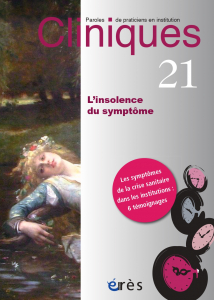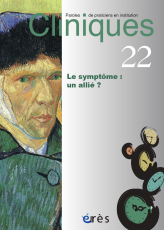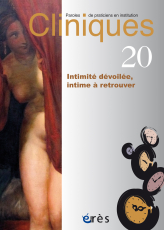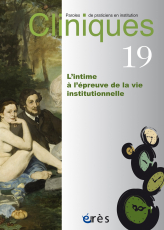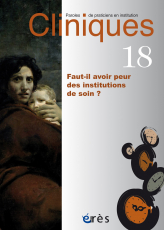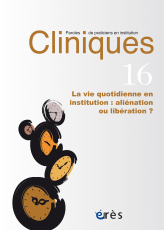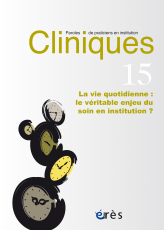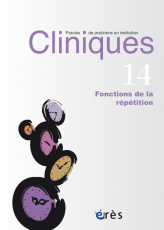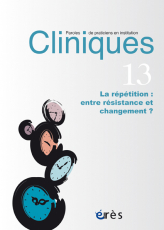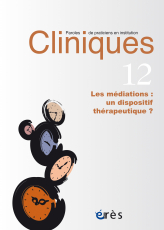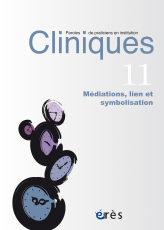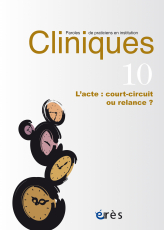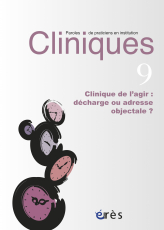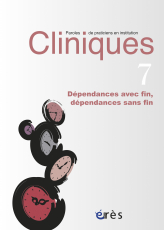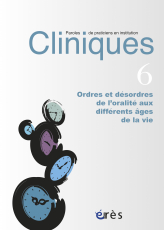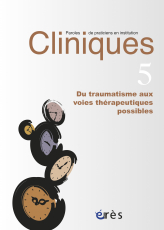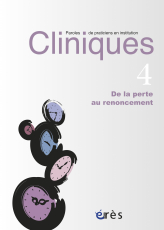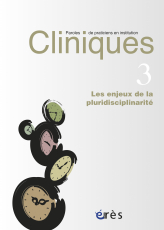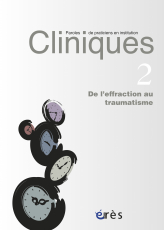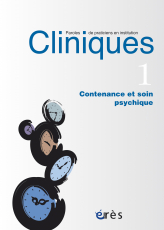Publications
The insolence of the symptom
Issue 21 : June, 2021
ISBN : 9782749270098
The psychological symptom is undeniably insolent. Sometimes it causes suffering, but not always, and when it is not the individual themselves, it can be the people around them or the social group that cannot tolerate its presence. We would like it to disappear as soon as possible, and yet it often resists, transforms or provokes. Sometimes it resists until it becomes an integral part of the personality; we would not let it go without losing a little of ourselves, of the identity or of the ideal we have given ourselves. When it expresses itself in the form of behaviors, phobic or addictive for example, its function and the benefits it provides can outweigh its drawbacks. There is also the symptom that manifests itself in our defensive body, or the symptom for which a spokesperson, a child for example, is the voice... The infinite variety of symptoms is in proportion to the complexity of the conflicting movements within the psyche, and more primitively to the hazards of the construction of subjectivity in relation to the environment. How can the institution of psychiatric care, rather than engaging in an exhausting battle, take hold of the symptom as an attribute, a challenge to questioning and creativity?
Authors
Joan BERNAUD, Pierre CHARAZAC, Patrick DE SAINT-JACOB, Anais DEVAUX, Catherine DUCARRE, Alain EHRENBERG, Catherine FOURQUES, Pierre GAUDRIAULT, Anne-Sophie GEORGES, Dimitrios KIAKOS, Isabelle LASVERGNAS, Samuel LEPASTIER, Elysé LINDE, Laurent MICHAUD, Dana PAMFILE, Charlotte PERRIN-COSTANTINO, Olivier PITEL
Table of contents
Editorial
Patrick de Saint-Jacob
INTRODUCING THE THOUGHT
1. Introduction, Charlotte Perrin-Costantino
2. Changes in the spirit of care : potential, disability and lifestyle, Alain Ehrenberg
THE SYMPTOM: SELF-IMPOSED ?
3. The clinical specificity of psychiatric symptom : the example of hysteria, Samuel Lepastier
4. When an elderly person does not want to live anymore, Pierre Charazac
5. Scarification in adolescence : a place to write about oneself, Anne-Sophie Georges
THE SYMPTOM A TROUBLEMAKER
6. The epistemic insolence of hypochondria, Pierre Gaudriault
7. What place for the symptom in addiction ? Between the consumption constraint and the constraint of abstinence, Joan Bernaud
8. Double clinical setting and transferential symptom, Isabelle Lasvergnas
9. To bring symptoms into play : the institution as a border crossing, Catherine Ducarre
THE SYMPTOMS OF THE INSTITUTIONAL HEALTH CRISIS
10. Otherness put to the test by COVID19 : Continuing to work as a team to overcome the health crisis..., Charlotte Perrin-Costantino
11. Covid 19 Crisis: Impacts on Caregivers and Institutional Functioning, Elysé Linde
12. When one crisis unveils another...The health crisis reveals an institutional crisis, Anaïs Devaux
13. Experiences of confinement in a Nursing Home, from the residents' and caregivers' perspective, Catherine Fourques
14. Beyond Coronavirus : delusion and desire, Dimitrios Kiakos, Laurent Michaud, Dana Pamfile
15. The small boats that are out on the water… Emergence and transformation of affects in an adolescent in the context of the Covid-19 pandemic, Olivier Pitel
Lectures….

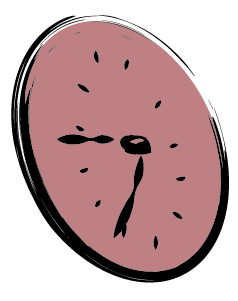 Publications
Publications 